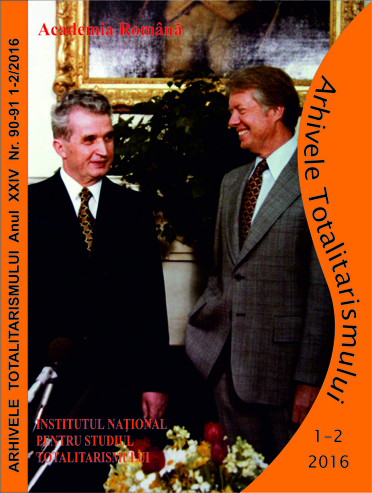Apropierea sovieto-iugoslavă din anii 1955-1956 și dizolvarea Cominformului
The Soviet-Yugoslavian closeness during 1955-1956 and the dissolution of
Cominform
Author(s): Aleksandr S. StykalinSubject(s): History, Diplomatic history, Political history, Recent History (1900 till today), Post-War period (1950 - 1989)
Published by: Institutul National pentru Studiul Totalitarismului
Keywords: The Soviet Union; Yugoslavia; Tito; the Cominform; Stalin; Khruschev, XX-th CPSU Congress;
Summary/Abstract: Set up in 1947, The Cominform was the centralizing instrument of the international Communist movement and played the main role in the anti-Yugoslavian campaign initiated by Stalin in 1948. However, the campaign was unsuccessful and Stalin lost the interest in the structure. After Stalin’s death, his successors did not attempt to revitalize the Cominform. Nevertheless N. Khruschev usually nervously reacted to the comments of the Western analysts concerning future dissolution of the organization which now pretended to be no more than the form of the experience exchange in the Communist movement. In February 1956, the Soviet leadership decided the dissolution of the Cominform which was realized in April 1956. The author stresses the vital role of the Yugoslavian factor in the dissolution of the Cominform – it was first of all the gesture aimed at the convergence with the titoist Yugoslavia and the returning of this country into the Soviet sphere of influence which was one of the priorities in the Soviet foreign policy in the first years after Stalin.
Journal: Arhivele Totalitarismului
- Issue Year: XXIV/2016
- Issue No: 1-2
- Page Range: 141-154
- Page Count: 14
- Language: Romanian
- Content File-PDF

